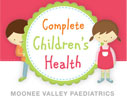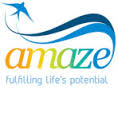Expressive Language
Expressive Language is the use of words, sentences and writing to convey meaning and messages to others. Expressive language skills include being able to label objects in the environment, describe actions and events, put words together, use grammar correctly (e.g. ” I had a drink” not “me drinked “, etc), retell a story, answer questions appropriately and write a short story, etc.
What are the approximate ages that Expressive Language (using words and language) develops:
The development of a child’s expressive language skills vary enormously and in some children certain skills will develop quicker than others. Therefore the information below is only a rough guideline.
6 months
A child can make sounds for attention and engages in sound play with familiar people.
12 months
A child will be using strings of sounds (babbling) and engaging in lots of sound play. Babble often sounds speech-like with similar intonation patterns. The child may be beginning to say first words which relate closely relate to functional needs and their own world (e.g. “da da”, “more” etc). Children’s understanding of words will exceed the use of words. Learning of social skills, such as turn taking, will be developing.
12-18 Months
Children begin to establish their first set of single words, although they may not be articulated correctly. These will be words related to familiar people or situations, e.g. “mummy”, “bikkie”, “out”, etc.
18 months – 2 ½ years
The child’s vocabulary will be approaching 50 words and when this has been achieved they will begin to link two words together e.g. “more bikkie”, “daddy gone” “mummy shoe”. The child needs to know some action words in order to build sentences. Later the child combines 3 or more words e.g. “mummy bikkie gone”, “car go garage” etc. The child begins to use “ing” endings and action words (e.g. “mummy brushing”), and plural “s” (e.g. “feed ducks”). The child is also now using words more often than gestures and begins to use their own name to refer to self.
2 ½ – 3 years
The child is now using around 450 words and combining nouns and adjectives (e.g. big/little) and action words (“running, sitting, etc) into 3 word sentences.
The child will begin to use more detailed grammar. This includes the use of:
a) Pronouns: Words that stand instead of names, e.g., “I washed my face”.
b) “s” to stand for “is” or to show possession, e.g. “Lola’s running”; “mummy’s dinner. The child also begins to ask questions using ‘What?’ ‘Who?’ ‘Where?’ etc.
3-4 years
A child begins to join words together into short sentences using joining words such as “and”, “because”, “but”, “so”, etc. e.g. “I washed my face and then I dried it”, “Callum was crying because he hurt his knee”. The child uses word endings such as “biggest”, “bigger” and “slowly”, e.g. “He’s bigger than me”. The language the child is using relates to observations, ideas and relationships. The child is able to describe objects and events and can tell you the function or use of an object (e.g. “A cup is for drinking, a car is for driving etc).
4 years
The child’s language is becoming more complex in terms of grammar and length of sentences and language is nearer to an adult model. The child uses past-tense, e.g. “I jumped”. Occasional errors may occur with irregular verbs “I broked it”. Some errors in the use of additional action words e.g. “I did painted that picture”. Child now asks ‘How?’ and ‘Why?’ questions.
5 years
The child is generally using approximately 2000 words and sentence length is about 5-6 words. The grammar that is used is complex and the language is fluent. As the child begins school at this age, their vocabulary will expand at a fast rate.
6 years
The child’s vocabulary continues to grow. They will begin to use language at a higher level to make jokes, tease, engage in sarcasm, argue their point of view, explain complex situations, talk about movies or past events in detail. They will develop written language skills and ability to write descriptive paragraphs and later go on to write elaborate stories and reports.
Why is it important?
Expressive Language is important to be able to engage in successful interactions with others and to be able to get a message across to other people. In school, expressive language difficulties may lead to problems showing other people what they know as the child may know the answer but may not be able to put the words together orally or in a written form.
Building blocks necessary to develop using Words and Language (Expressive Language Skills):
- Adequate hearing to be able to hear all the sounds and information contained in speech and language.
- Good attention and listening skills in order to attend and listen to speech and language and to be able to take the time to plan and produce language.
- Age appropriate understanding of language.
- Good interaction skills (e.g. eye contact, joint attention, turn taking etc) with main carer/parent.
- Play development.
- Motivation and want to communicate with others.
You can tell there are problems with using words and language (expressive language) if:
- The child has difficulty naming items and objects.
- The child does not link together words or uses sentences that are shorter than others the same age.
- Sentences the child is using sound “immature for age
- The child uses “jargon” (made up words) in speech.
- Sentences being used are “muddled” (words in wrong order, lots of stops and starts, lack of flow etc).
- Unfamiliar people don’t seem to understand what child is saying.
- The child has difficulty finding the right word to use in conversation or when describing or explaining something.
- The child has difficulty retelling a story.
- The child has difficulty writing paragraphs and stories.
(These difficulties will vary from child to child dependent on their age)
When the use of Words and Language (Expressive Language Skills) is less than ideal, it can contribute to:
- Difficulties expressing needs and wants leading to frustration.
- Difficulties interacting with peers successfully.
- Reluctance to participate in group or class discussions.
- Difficulties participating in discussions.
- Difficulties accessing and engaging in age-appropriate academic tasks.

What can be done to improve use of Words and Language (Expressive Language Skills)?
- For the young child: engage in play with your child on a regular basis, model how to play with toys, follow your child’s lead and talk about what they are doing with the toys.
- Talking to your child often throughout the day about what you are doing, where you are going, what you are going to do, what you have just done etc.
- Turning of background noise in the home (e.g. T.V, radio, music) etc.
- Getting face to face with your child when talking.
- Expanding the language your child is using by repeating what they are saying and adding one or two words to their utterance.
- Looking at books together with your child using books they are interested in and talking about the pictures or the story.
Contact The Team
If we can help in any way, please leave your details and we’ll get back to you at our earliest convenience.
Activities that can improve using Words and Language (Expressive Language Skills) include:
- Naming items together when looking at a book, in the car, looking outside, while they are playing, during shopping etc.
- Engaging in lots of “hands on” activities (e.g. shopping, going to the park, zoo, museum etc ) then talk about/draw/act out what you did and saw.
- Playing something together that your child really enjoys and throughout the game model new words and phrases.
- Looking at books together and talking about what you see.
- Asking questions about what is happening in a story and why it is occurring.
- Singing songs together.
- Using pictures/drawings/photo’s to make a book or sequence of events and making up a story about the pictures.
- Reading stories to the child who can’t read and can already read.
- Writing letters to friends.
- Talking together about a picture and then writing down what you said.
(Activities above would vary depending on the age and language level of the child).





